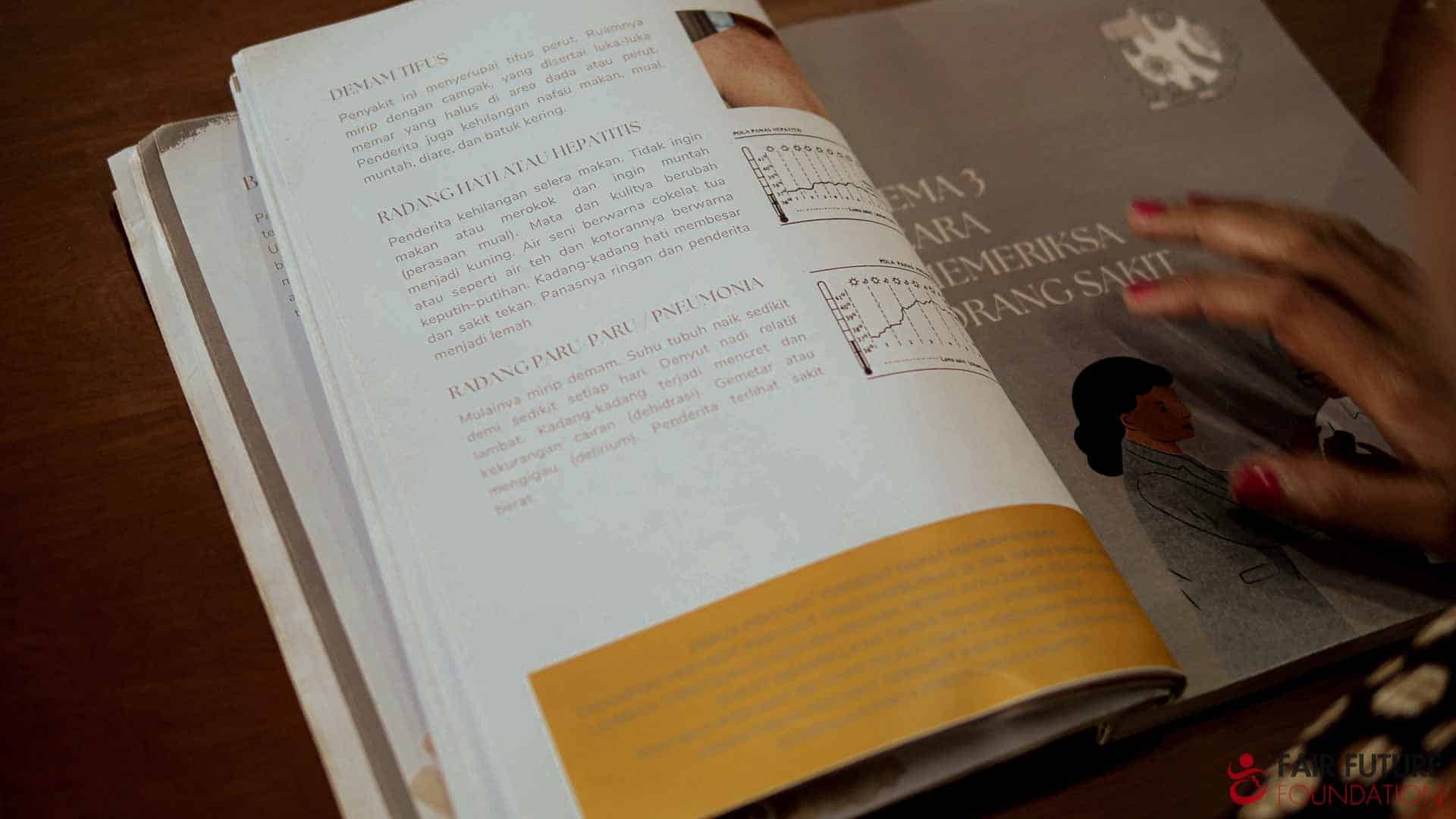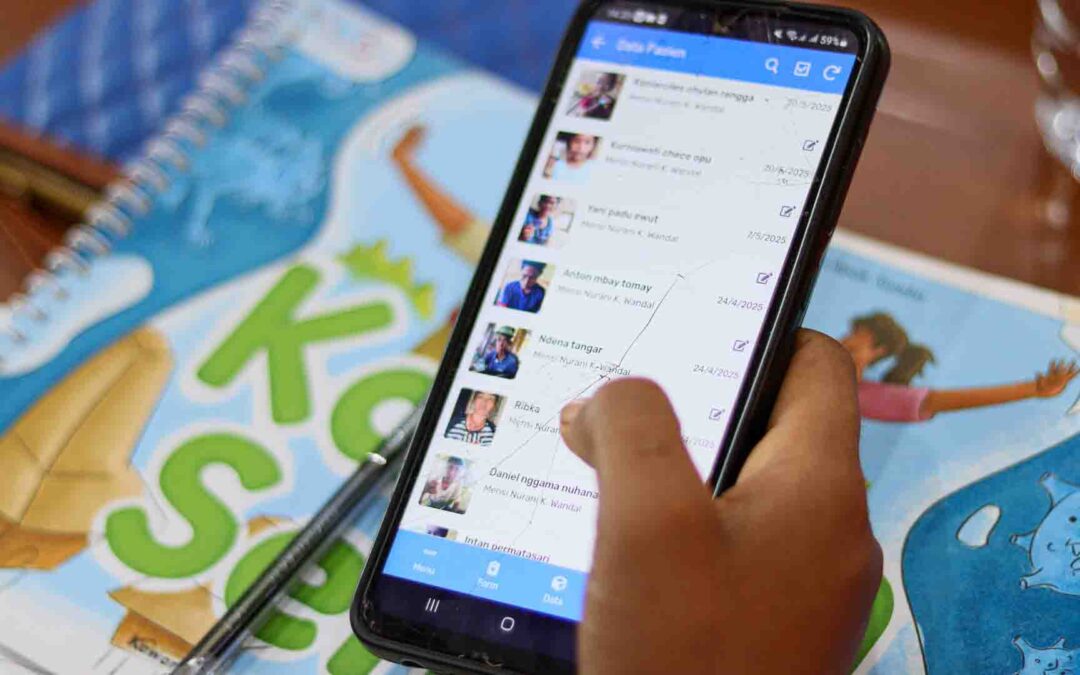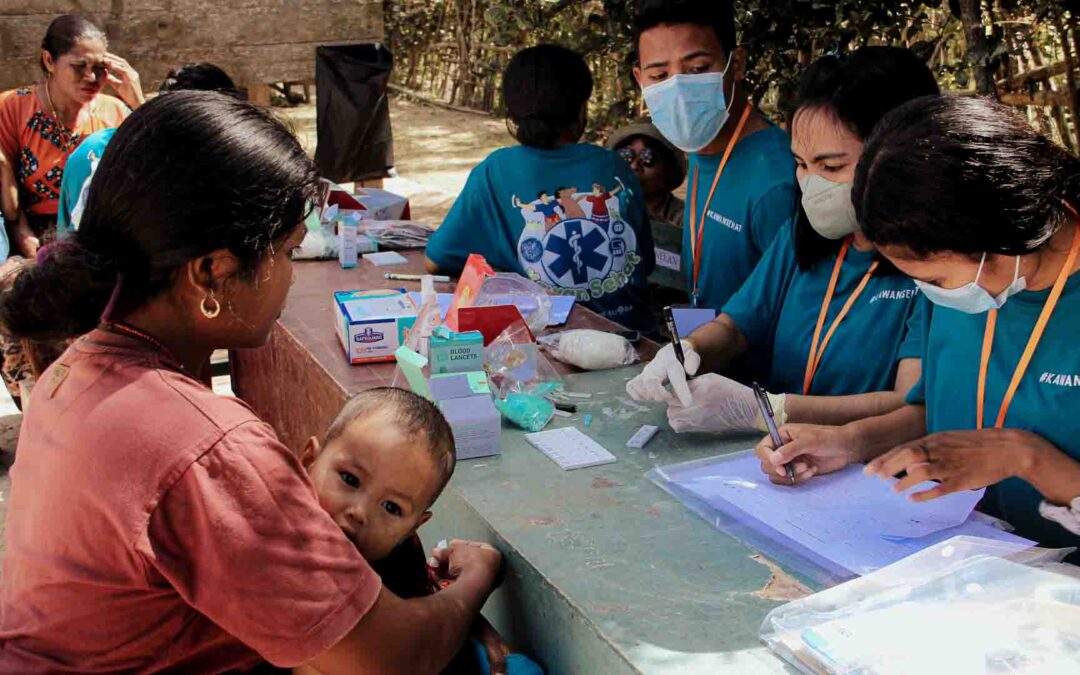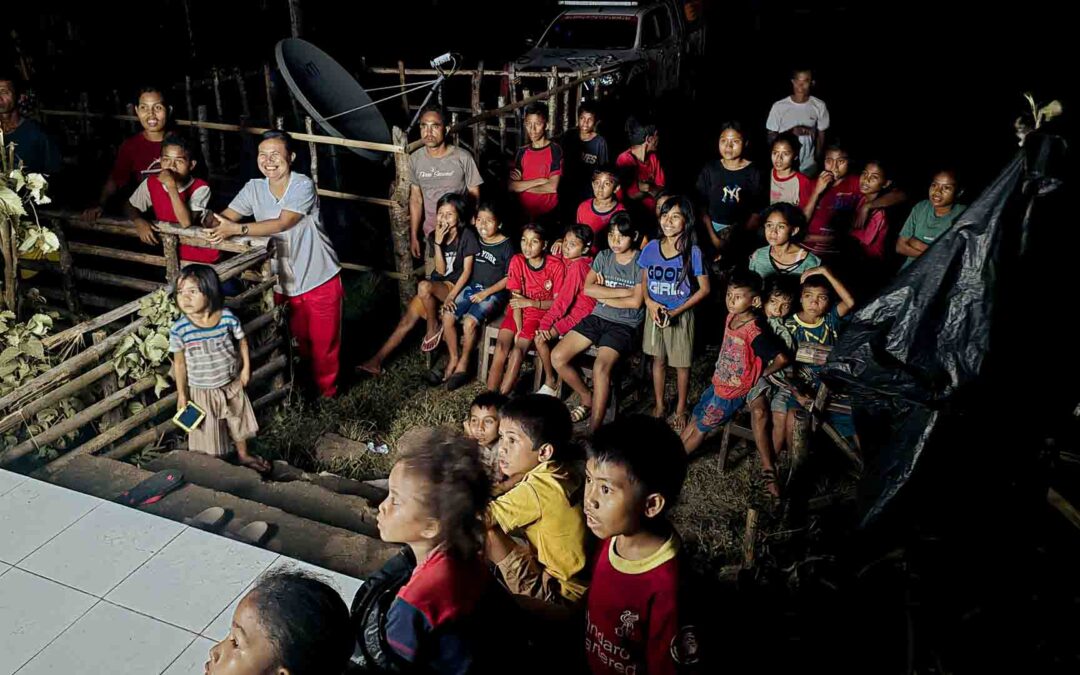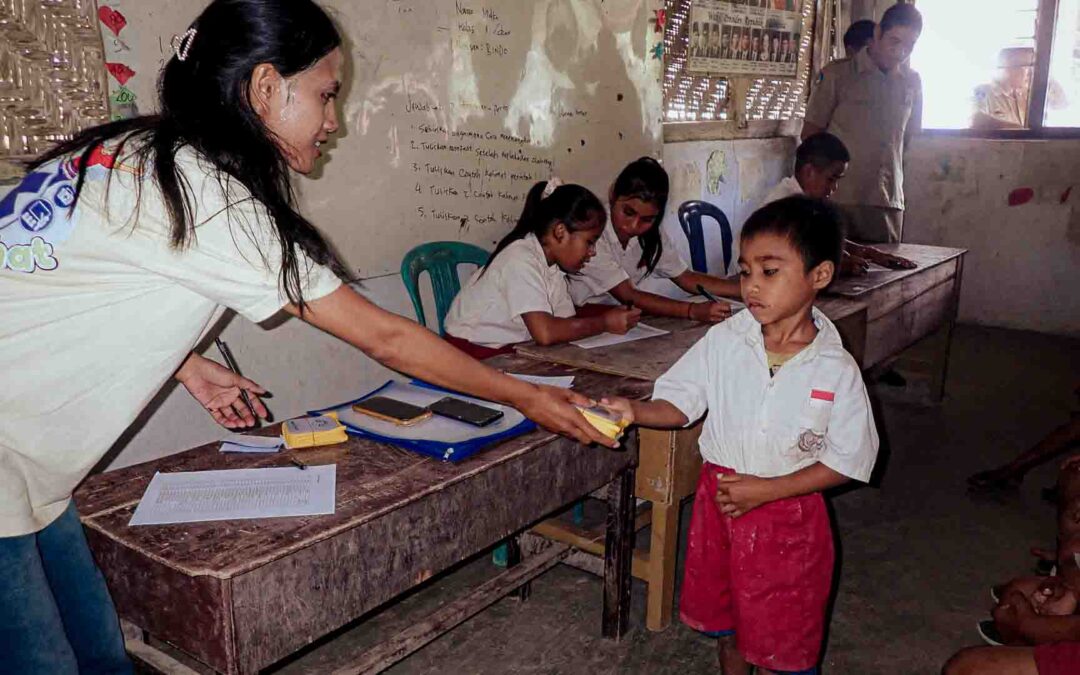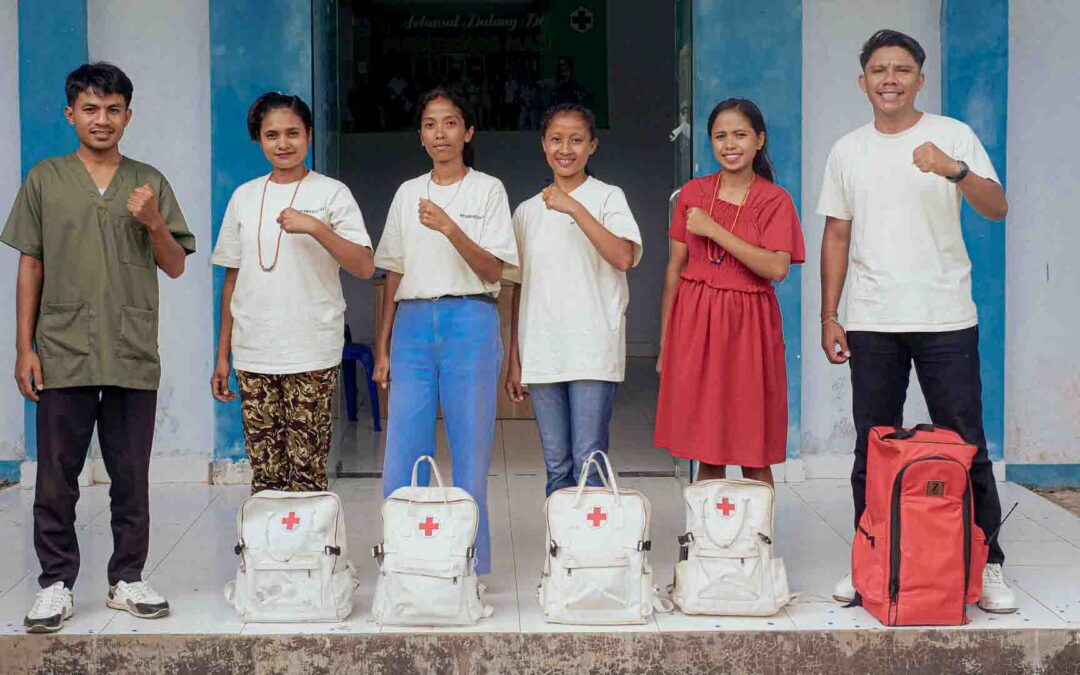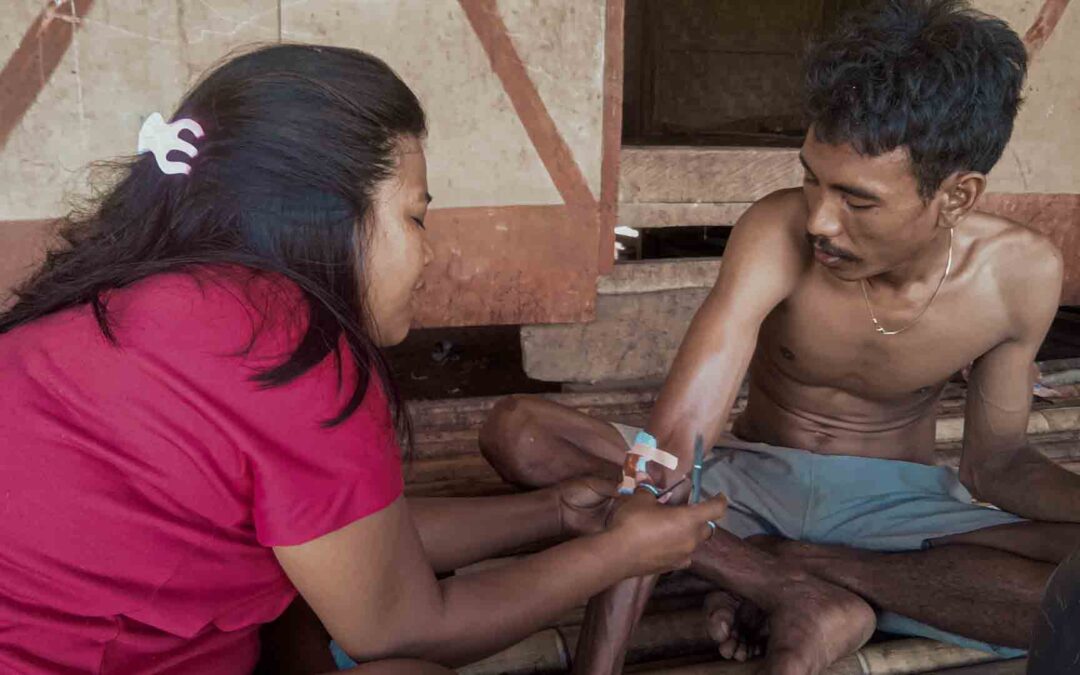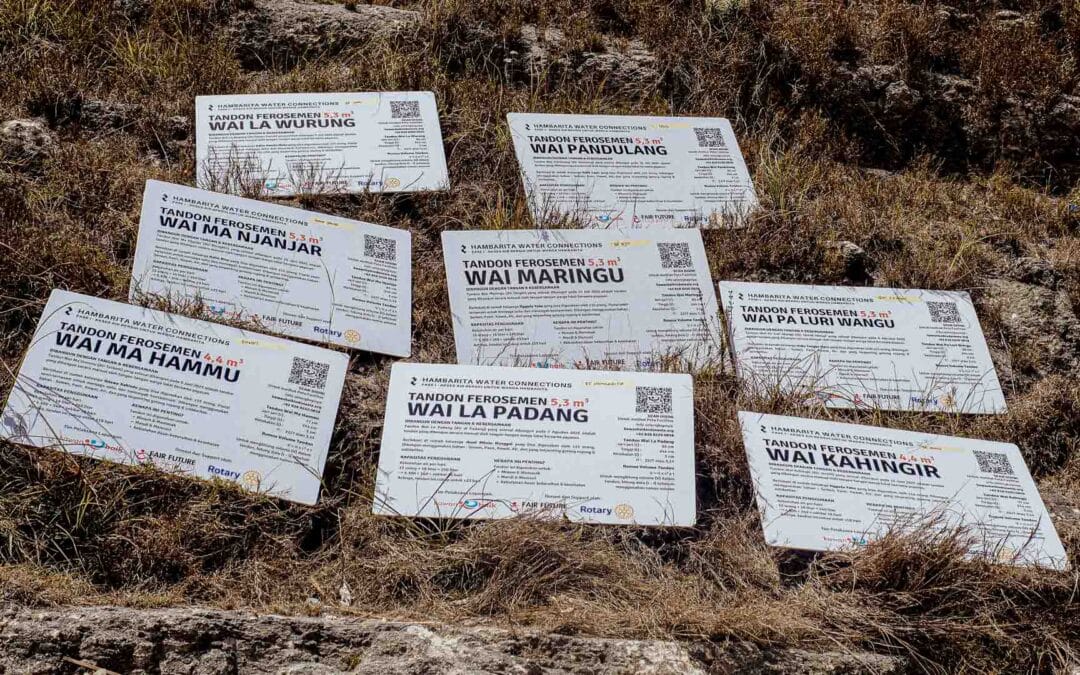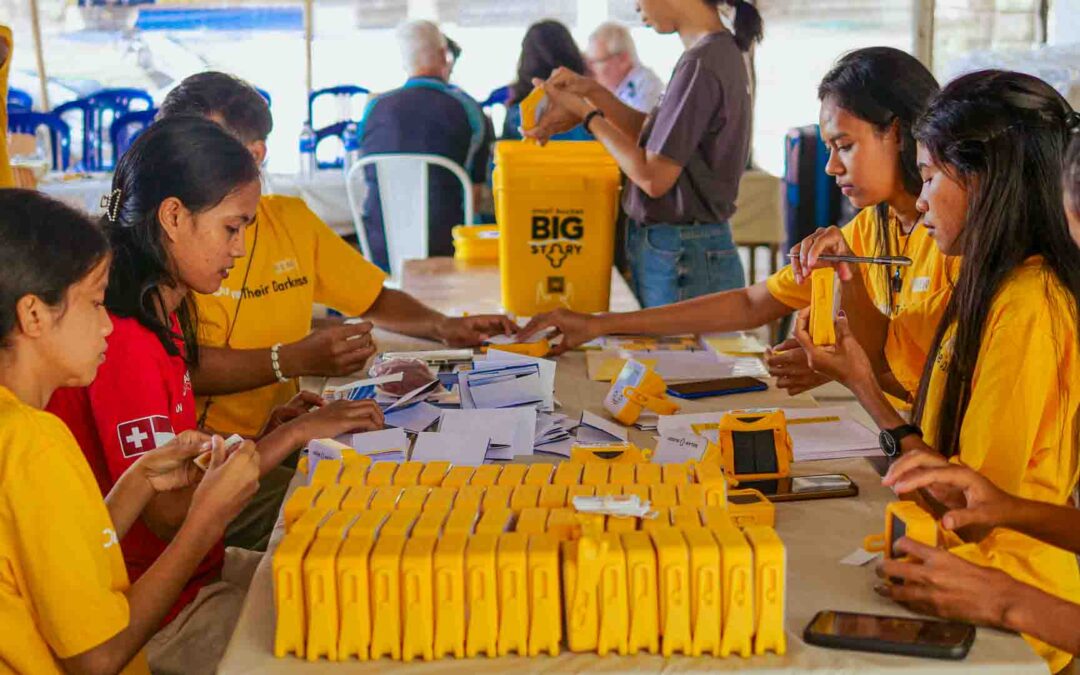The training book serves as an invaluable resource, empowering rural health agents with crucial skills to handle various medical situations. Each of the 15 chapters delves into different aspects of primary healthcare, from basic first aid to identifying and managing common illnesses in regions where professional medical assistance might not be readily available.
This image is in 1920×1080 resolution. Click on it to enlarge and view at full size.
Picture of the Day: Strengthening the performance of community health workers in primary health care.
This New (and 2nd) Picture of the Day features one of our health workers, Kawan Sehat, with his Primary Medical Care Training Manual on his lap as he waits to begin studying a chapter. Covering a substantial introduction, 14 chapters, and 168 pages, this comprehensive book is an essential tool for providing life-saving health care in ultra-rural areas where medical resources are limited or non-existent. This book has no objective but to preserve and save as many lives as possible.
Key topics covered in the manual:
- Traditional Medicine and Beliefs: Analyzing the role, safety, and limits of traditional practices in rural healthcare.
Common Illnesses and Symptoms: Recognizing general health conditions and basic diagnostics. - Patient Referral: Guidelines for managing minor illnesses and referring serious cases to health facilities.
- Healing Naturally: Discovering water therapies and preventative care.
- Responsible Use of Medicines: Appropriate use of contemporary medicines, including antibiotics and over-the-counter medications.
- First Aid: Methods of treating burns, wounds, sores, fractures, and emergencies resulting from animal bites or poisoning, Cardiopulmonary Resuscitation, etc.
- Disease Prevention: The importance of hygiene, vaccination, clean water, and proper sanitation.
Specific Illnesses: Treating diarrhoea, Malaria, Polio, Dengue, Hepatitis, respiratory infections, skin conditions, and other common rural health issues. - Children’s Health: Maintaining and promoting the health of children, including managing congenital issues and disabilities.
- Dental and Oral Health: Essential care for teeth, gums, and general hygiene.
- Eye Health: Recognising and managing common eye problems.
- Mental Health: Caring for individuals with developmental delays or disabilities.
- Medication Storage and Safety: Properly storing and managing medicines to ensure effective treatment.
An ounce of prevention is worth a pound of cure… Written in Indonesian and adapted to the specific challenges of rural areas, this book equips health workers participating in the Primary Medical Care programme with practical knowledge and skills to provide optimal primary care. Each chapter addresses the realities of providing health care where infrastructure is limited and medical facilities are scarce.
This training book is regularly updated; it serves as both a reference guide and a course aid during intensive multi-day training sessions.
By integrating this resource with practical training, Fair Future and Kawan Baik Foundations enable health workers to protect lives and promote health by providing essential care to the sick, vulnerable, and injured in some of the most remote areas.
Alex Wettstein – Fair Future Foundation medico-social camp in East Sumba – Rumah Kambera, Lambanapu – December 20th 2024.
External Links
- Doctors Without Borders: Provides emergency medical care in underserved regions.
- Partners In Health: Focuses on strengthening health systems and training local health workers.
- World Health Organization (WHO): Promotes healthcare training and resources for underserved areas.
- Last Mile Health: Trains local health workers to deliver essential care in remote communities.
- BRAC: Supports rural healthcare through training and community-based solutions.



